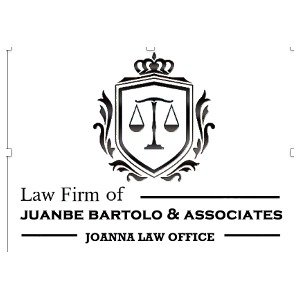Best Tax Increment Financing Lawyers in Baguio City
Share your needs with us, get contacted by law firms.
Free. Takes 2 min.
List of the best lawyers in Baguio City, Philippines
About Tax Increment Financing Law in Baguio City, Philippines
Tax Increment Financing (TIF) is a public financing method that is used to subsidize community-improvement projects in Baguio City, Philippines. The primary aim of TIF is to catalyze development in underdeveloped or redeveloping areas by using the future gains in taxes. These future gains are the incremental increases in property tax revenues that are realized as improvements are made. By capturing these increments, TIF provides a mechanism for municipalities like Baguio to incentivize economic development without raising the immediate tax burden on the residents.
Why You May Need a Lawyer
Engaging with TIF can involve complex legal and financial processes. You might need a lawyer to help you navigate the establishment of a TIF district, especially if you are a property owner, developer, or part of a local council. Legal assistance is often required to interpret financial implications, negotiate terms, ensure compliance with local laws, and understand how TIF might affect personal or business taxes. If disputes arise over the distribution or use of TIF funds, having legal representation is crucial to protect your interests.
Local Laws Overview
In Baguio City, as in the rest of the Philippines, TIF is governed by several statutes that pertain to tax laws, municipal governance, and property development. Key aspects include the designation of TIF districts, the calculation and capture of incremental tax gains, and specific requirements for transparency and accountability in the use of TIF funds. Understanding the local ordinances that implement these statutes is essential for anyone involved in TIF projects.
Frequently Asked Questions
What is the primary goal of Tax Increment Financing in Baguio City?
The primary goal of TIF in Baguio City is to stimulate economic growth and redevelopment in designated areas through financing from future tax revenue increases.
How is a TIF district established in Baguio City?
A TIF district is typically established through a city ordinance, which involves public hearings and input from local stakeholders, to identify areas in need of improvement and potential future economic benefits.
Who can initiate a TIF project?
TIF projects can be initiated by local government units, private developers in partnership with city councils, or community development organizations focused on urban revitalization.
Can TIF funds be used for any type of project?
TIF funds are usually earmarked for projects that will likely increase property values and tax revenues, such as infrastructure improvements, public facilities, and certain residential and commercial developments.
What are the risks involved in using TIF?
Risks include potential shortfalls in projected tax revenue increases, leading to funding gaps, or disputes over misallocation or mismanagement of TIF funds.
How does TIF affect property taxes?
While TIF intends to boost property values, it may lead to higher taxes in the long term as assessed values increase, though the immediate impact is meant to be offset by future revenue gains.
Is TIF a common practice in the Philippines?
While TIF is not as widely utilized as in some Western countries, its application in urban areas like Baguio City is growing as local governments seek innovative funding solutions for public projects.
How can a lawyer assist with TIF projects?
A lawyer can assist with drafting and reviewing TIF agreements, advising on compliance with municipal laws, handling negotiations, and representing stakeholders in legal proceedings related to TIFs.
Are there alternatives to TIF?
Yes, alternatives include traditional municipal bonds, special assessment districts, or public-private partnerships, each with its own implications for project funding and risk.
What should I do if I have concerns about a TIF project?
Engage with local government authorities, attend public meetings, and consider consulting with a legal expert to explore your concerns and determine the appropriate course of action.
Additional Resources
If you're seeking more information on TIF, consider reaching out to the City Government of Baguio's Planning and Development Office, the Department of the Interior and Local Government (DILG), or legal consultancy firms specializing in land use and taxation. These resources can provide valuable insights and guidance tailored to your situation.
Next Steps
If you feel the need for legal assistance in matters related to Tax Increment Financing, it's advisable to consult with a legal professional specializing in tax or municipal law. Begin by gathering all relevant documents and information about the TIF project or issue at hand. Arrange a consultation to discuss your case, understand the legal landscape, and explore possible legal strategies. Consider reaching out to local bar associations for referrals to qualified lawyers experienced in TIF-related issues.
Lawzana helps you find the best lawyers and law firms in Baguio City through a curated and pre-screened list of qualified legal professionals. Our platform offers rankings and detailed profiles of attorneys and law firms, allowing you to compare based on practice areas, including Tax Increment Financing, experience, and client feedback.
Each profile includes a description of the firm's areas of practice, client reviews, team members and partners, year of establishment, spoken languages, office locations, contact information, social media presence, and any published articles or resources. Most firms on our platform speak English and are experienced in both local and international legal matters.
Get a quote from top-rated law firms in Baguio City, Philippines — quickly, securely, and without unnecessary hassle.
Disclaimer:
The information provided on this page is for general informational purposes only and does not constitute legal advice. While we strive to ensure the accuracy and relevance of the content, legal information may change over time, and interpretations of the law can vary. You should always consult with a qualified legal professional for advice specific to your situation.
We disclaim all liability for actions taken or not taken based on the content of this page. If you believe any information is incorrect or outdated, please contact us, and we will review and update it where appropriate.









